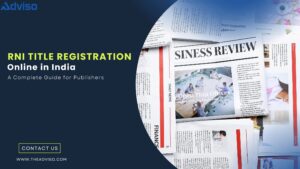Qualification For Insurance Surveyor – Eligibility Criteria & How to Apply
Insurance surveyors’ contribution towards insurers’s growth has been nothing short of instrumental. They have long been serving as an extended arm for insurers looking to streamline their operations. Among the key obligations of surveyors are risk assessment, claim processing, and claim estimation. They enable insurers to make informed decisions as and when required with utmost precision. Surveyors are pivotal in preventing insurers from considerable losses incurred by falsified claims or inaccurate claim estimation, bringing unparalleled value that drives growth and resilience. Being an insurance surveyor is a matter of following numerous compliances concerning registration, qualification, training, etc. This blog takes a deep dive into the qualification for insurance Surveyors alongside other key details.
Who is an Insurance Surveyor and Loss Assessor?
An insurance surveyor and loss assessor is an IRDAI-approved professional who undertakes key activities, including claim assessment for a hassle-free estimation. This allows insurers to be remarkably precise with the claim amount they owe, reducing losses and promoting growth. The surveyor and loss assessor combine field acumen with the authority’s guidelines to get the job done meticulously. They reinforce accuracy and fairness in the claims assessment, keeping potential conflicts at bay.
Being an indispensable asset for an insurance company, these professionals fall under the ambit of Section 64UM of the Insurance Act, 1938, and the updated IRDAI (Surveyors & Loss Assessors) Regulations. The Qualification for Insurance Surveyor defines how proficient the individual is with different subject matter. Hence, emphasizing the qualification for Insurance Surveyor is paramount when seeking an IRDAI approval.
Check out stories: How To Find the Best Consultant for Insurance Broker License
Core Responsibilities of an Insurance Surveyor
While insurance surveyors and loss assessors cater to various undertakings, their frontline obligations include:
- Investigating Losses: Analyzingcontingencies for the estimation of insured and uninsured losses.
- Quantifying Claims: Assessing the extent of loss or damage within the purview of IRDAI norms
- Inspection and Surveys: Conduct spot checks and final surveys if required, ensuring zero ambiguity regarding the claim.
- Providing Expert Advice: Providing pragmatic insights that help with loss reduction and security enhancement.
- Reporting: Recording assessment results and feedback into the prescribed documents, leading to seamless future reference.
Underlining Mandatory Qualification for Insurance Surveyors
Applicants seeking insurance surveyor registration must have specific qualifications and undergo mandatory training as recommended by IRDAI. Below is the breakdown of the same in detail.
1. Educational Requirements
To serve the role of insurance surveyor, the candidate must have one of the following qualifications:
- Engineering Degree: It is mandatory for surveyors who propose to deal with technical or machinery-related claims.
- Architecture Degree: It is paramount for applicants to assess building or structural damage.
- Accountancy Certification: Chartered Accountants certificate is a must for applicants dealing with claims involving financial loss.
- Medical Degree: Required by candidates who propose to address health-related insurance claims.
- Legal Degree: When it comes to handling liability and legal claim assessments, having an advocate certification is vital.
Additionally, candidates having a diploma or equivalent certification in relevant fields may also apply as long as their qualifications are aligned with the area they wish to address in the insurance sector.
2. Professional Certification
Besides having the above qualifications, aspiring surveyors should pass the Licentiate Examination orchestrated by the apex body viz. Insurance Institute of India (III). Passing this exam is vital as it reinforces that the candidate is proficient in:
- Insurance laws and regulations.
- Surveying techniques.
- Ethical practices.
3. Enrolment with IRDAI
Candidates must enroll in the IRDAI BAP Portal to legalize their standing as surveyors. This requires the creation of a valid account and submission of key dossiers, including educational certificates and proof of identity.
4. Training Requirements
After clearing the III exam, candidates must undergo mandatory training, which can pursued via
- Licensed Surveyor for practical and hands-on experience.
- Institutional Training organized by authorized bodies.
The training duration shall vary depending on the discipline chosen by the applicant.
5. Licensing Process
Upon completing the training, candidates can prompt IRDAI to confer the Surveyor License via the application and a standard fee.
6. Renewal of License
- A valid surveyor license must be renewed every three years.
- Applications for renewal can be initiated 90 days before the expiry date.
- Late renewals incur penalties ranging from INR 100 to INR 750, depending on the delay.
Steps to Become an Insurance Surveyor
- Create a user ID on the IRDAI BAP Portal. It will be used for the application form accessibility.
- Upload all mandatory paperwork, including educational and identity proofs.
- Register and pass the III exam against the specialization that you have chosen.
- Gain pragmatic experience either via a licensed surveyor or an institution.
- Submit the application concerning the first license alongside training certification.
Other Key Regulations and Processes
Corporate Licensing
Entities like LLPs or firms registered under the Companies Act 2013 can apply for a corporate surveyor license provided
- They have at least two licensed individual surveyors serving as directors/partners.
- The entity’s objective revolves around surveying and loss assessment.
- Form-3AF is used as a prescribed application and submission of a fee of INR 5000 has been done.
Modification of License
The following instances incur the requirement of modifying the license:
- Adding new lines of business.
- Changing personal information such as name or address.
- Issuing a duplicate license in case of loss.
FAQs
1. What is the qualification for insurance surveyors?
Key qualification includes a degree or diploma in disciplines like accountancy, engineering, medicine, law, etc. Also. passing the III Licentiate Examination is paramount.
2. How long does it take to become an insurance surveyor?
The process, including registration, examination, training, and licensing, can take a week or even a month depending on the compliance and paperwork threshold.
3. Can a surveyor license be renewed after expiry?
Yes, but harsh penalties can come into play in case of late renewal.
4. Is training mandatory for insurance surveyors?
Yes, training under a licensed surveyor or institution is paramount as soon as the III exam is cleared.
5. Can LLPs apply for corporate surveyor licenses?
Yes, LLPs incorporated under the LLP Act, 2008, are eligible, provided they stay aligned with the IRDAI norms.
Conclusion
The qualification for insurance surveyor is a perfect blend of field acumen and pragmatic training. Upon successful training, the certified surveyor can team up with prominent insurers for a wide range of services with an increased emphasis on risk assessment and claim estimation. The certified surveyor brings a wealth of knowledge and expertise that keep insurers afloat amidst the dynamics of insurance claims.
Read Our Article: How to Become a Surveyor Loss Assessor: A Comprehensive Guide




